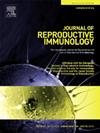Effects of female bone marrow transplantation on male reproductive organs
Abstract
Graft-versus-host disease (GVHD), an adverse effect after bone marrow transplantation (BMT), may affect male reproductive function. It is hypothesized that a sex-mismatched BMT induces GVHD in male reproductive organs because female immune cells are not immunologically tolerant to specific antigens of the male organs. However, this hypothesis has not been experimentally verified using male (M) recipient animals following BMT from the female (F) donors. Therefore, the aim of the present study is to examine whether the female BMT to males (F→M group) induces some GVHD reactions in the testis and the other male reproductive organs. The results showed that no inflammation was found in recipients of the male BMT to males (M→M group), whereas significant inflammatory cell responses lasting for at least 4 months were induced in testis, epididymis, prostate and preputial gland in some mice of F→M group. The most severe lesion was found in the preputial gland, in which lymphocytic inflammation was accompanied by loss of glandular acini, thickening of the interstitum and increased cytokines such as TNF-α and IFN-γ. Western blot analyses revealed that sera from the F→M group reacted with various antigens of the male reproductive organs. These results indicate that transplanted female immune cells may recognize the male reproductive organs as immunologically foreign ones and induce chronic GVHD, which may affect male reproductive function.

 求助内容:
求助内容: 应助结果提醒方式:
应助结果提醒方式:


